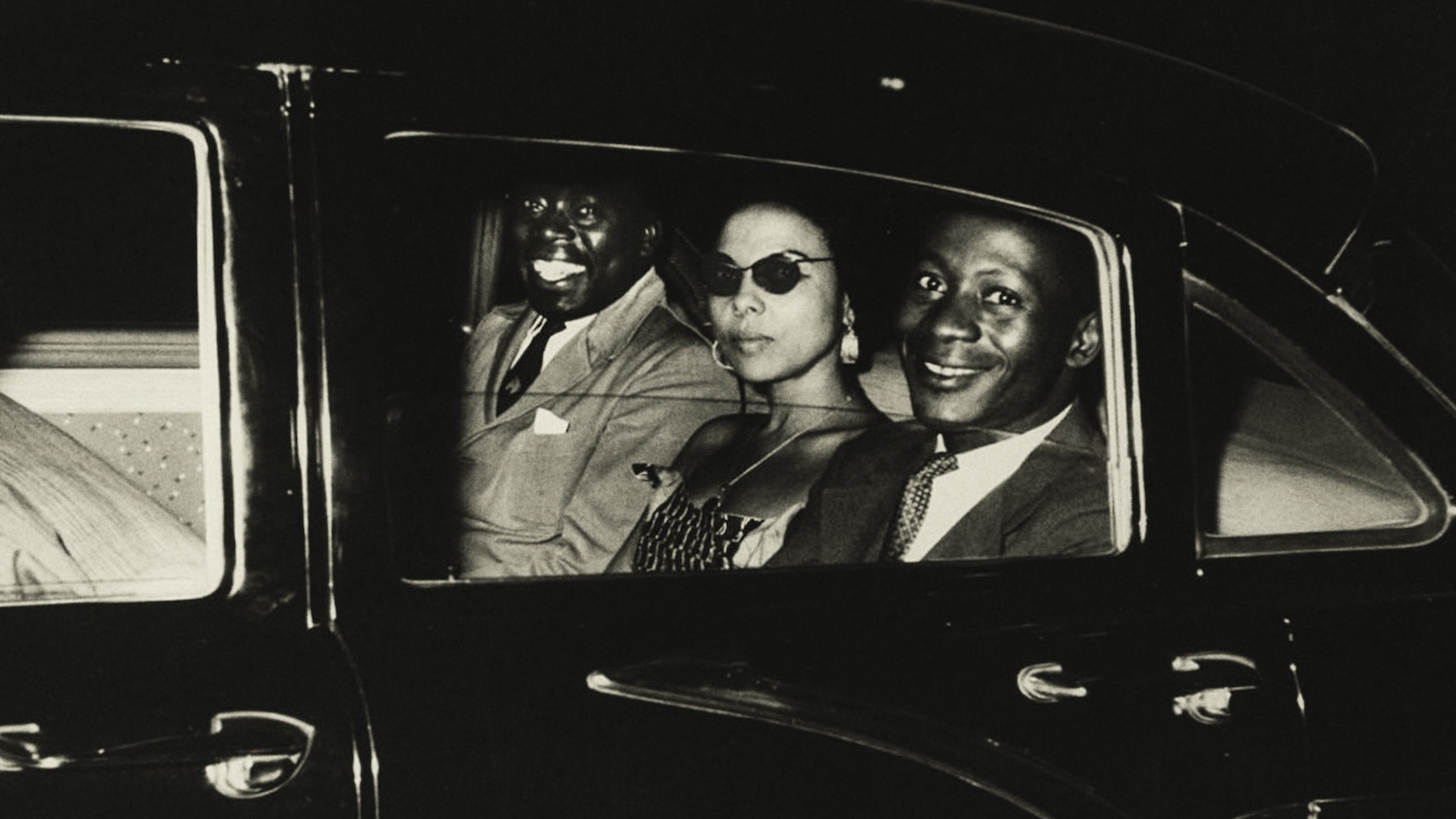SOUNDTRACK TO A COUP D’ETAT

(The 2024 Sundance Film Festival runs January 18-28. Check out Chris Reed’s movie review of Soundtrack to a Coup d’Etat. Seen it? Join the conversation with HtN on our Letterboxd Page.)
The late (not so great) Henry Kissinger was, very much to a fault, a strong proponent of “realpolitik,” prioritizing the American national interest—as he perceived it—above all else, even if that meant supporting regimes with ideologies ostensibly the opposite of the United States’. He did not, however, invent that policy, merely raising it to new levels of human-rights disasters. In the new documentary Soundtrack to a Coup d’Etat, director Johan Grimonprez (Blue Orchids) showcases an egregious application of imperial power that predates Kissinger, reminding us how often big countries bully smaller ones. It’s an important, if unpleasant, lesson.
The time and the place are the Belgian Congo, 1960. As that Central African colony prepares for independence, the Americans and the Soviets, led by President Dwight Eisenhower and Premier Nikita Khrushchev, each jockey for position and influence, worried about what might happen to the vast uranium deposits within. And then there are the Belgians, unwilling to completely let go of their subjects. None of them are overly excited by Patrice Lumumba, elected the new country’s first prime minister, who makes little assurances about how respectfully he plans to treat the treasures left behind.
And why should he? Independence, after all, means freedom from those who once governed you. But despite the pro-African rhetoric of United Nations Secretary General Dag Hammarskjöld, and the public statements by Eisenhower about keeping the CIA out of things, pressure from the belligerent Belgians quickly destroys the short-lived peace of the newly named Republic of the Congo. The meddling that no one acknowledges leads to civil war, an eventual lengthy dictatorship, and instability and inequities that persist to this day.
But that’s not all that concerns Grimonprez. Or rather, he eschews a straightforward political account, bringing in additional elements, as promised by the title, and populating his narrative with scores of jazz musicians. Some, like Louis Armstrong and Nina Simone, were sent on diplomatic missions to Africa to showcase American culture in the middle of the Cold War. The USSR would then counter with propaganda of its own. Gamesmanship at its best.
Many of the musicians featured, however (including the two mentioned above) were not always happy to play along, not when their own civil rights were up for debate back home. One of them, Dizzy Gillespie, even mounted a (granted, mock) presidential campaign of his own, promising to bring real change to the White House. If only.
And so Grimonprez—himself Belgian—alternates between the titular soundtrack and the increasingly bloody events on the African continent. Drummer Max Roach and singer Abbey Lincoln perform pieces from their We Insist! Freedom Now suite, the righteousness of their message challenging the machinations of the superpowers. The net result is a piercing condemnation of empire and white supremacy.
The entire movie—with the exception of one modern-day interview with Congolese author In Koli Jean Boufane—is told through impressively edited archival material. Among the myriad fascinating parts, it’s hard not to enjoy Khrushchev, despite his love of thumping podiums, who seems far more supportive of the Congolese than anyone else and is always extremely genial to everyone (of course, he had his own self-serving agenda, too). But he is hardly alone here, as the assembled onscreen cast is equally riveting.
Soundtrack to a Coup d’Etat offers many things at once: masterful history lesson, insightful polemic, and cinematic tour de force. Come for the violent saga, stay for the musical anecdotes. Most of all, marvel at how it is all stitched together.
– Christopher Llewellyn Reed (@ChrisReedFilm)
2024 Sundance Film Festival; Johan Grimonprez; Soundtrack to a Coup d’Etat











